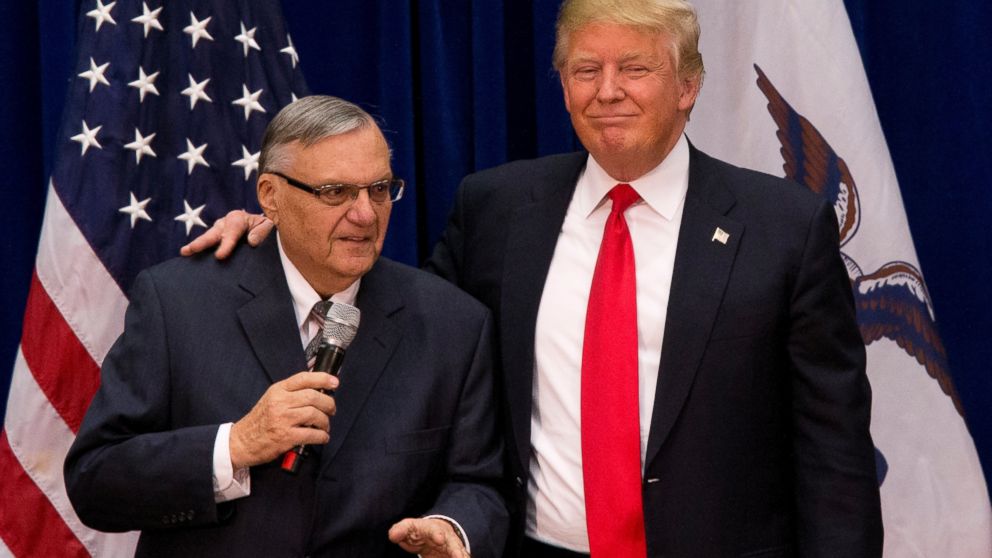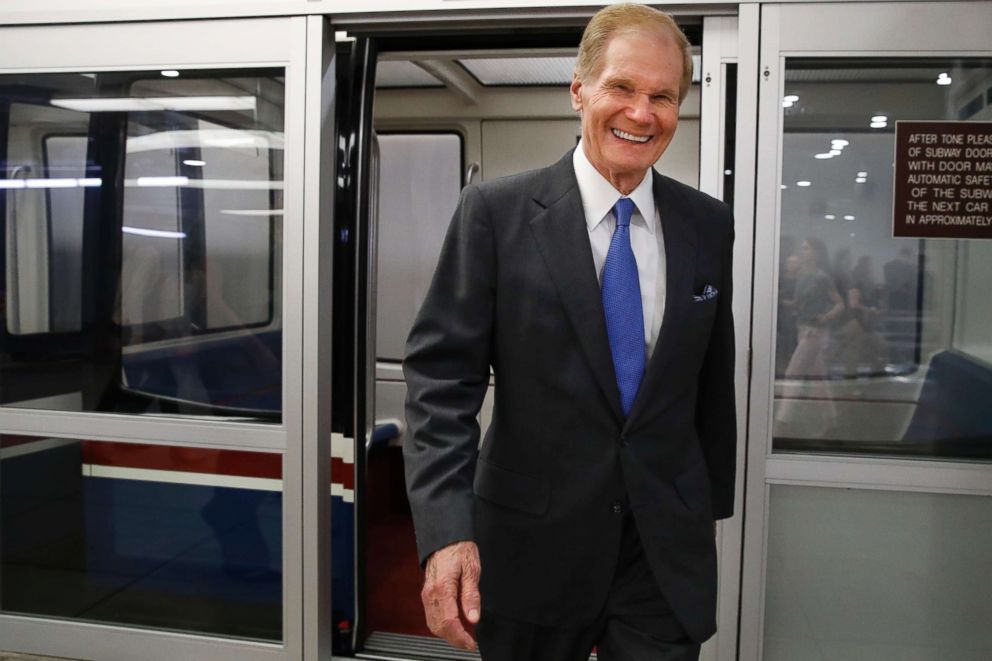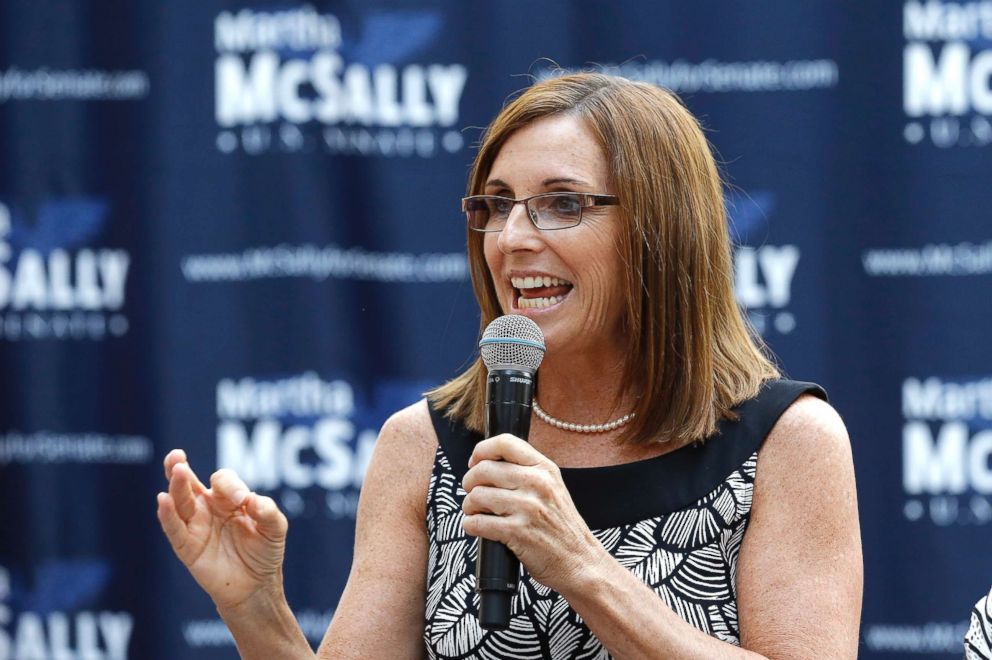Sun Belt showdowns: What to watch for in Tuesday’s primaries: ANALYSIS
Arizona and Florida were key to President Trump's 2016 election victory.

Two big, diverse, and scorchingly hot states that were key to President Donald Trump’s 2016 victory highlight the last major multi-state day of voting in the 2018 primaries.
Voters in Arizona and Florida - plus Oklahoma, where there are a few scattered runoffs - will choose candidates for the midterms on Tuesday.
The late-summer races are likely to reinforce the trends of a colorful and surprising primary season - and lay out the stakes for November.
Voting will take place in Arizona under sad circumstances: The McCain family announced Friday that Sen. John McCain has discontinued medical treatment for brain cancer, though his seat won’t be on the ballot until 2020 in all likelihood.
Immigration, gun control, health care, and the environment are all playing big roles. Arizona and Florida both went for President Donald Trump, but shifting demographics and political trends could shade both states blue, and both feature Senate races that are atop the list of potential party switches.
Looming over it all, as always, is Trump, who has placed his thumb on different portions of the map even as he comes off one of the most politically damaging weeks of a tumultuous presidency.
Here are five trends to watch in Tuesday’s primary contests:
Trumpification
Even in the home states of McCain and Jeb Bush, the president continues to demonstrate control of the Republican Party. In Arizona, the seat now represented by Sen. Jeff Flake – perhaps the most outspoken GOP Trump critic in Congress – features a wild Republican primary where Trump hasn’t endorsed, but all three candidates are pledging loyalty to the president. Their styles could hardly be more varied, though, with Joe Arpaio, Kelli Ward, and Martha McSally taking Trumpism in different directions. In Florida, Trump almost single-handedly elevated a little-known congressman, Ron DeSantis, to front-running status in the race for governor against establishment favorite Adam Putnam. In one campaign ad, DeSantis encourages his toddler daughter as she plays with blocks: “build the wall.” The 2018 primary season is ending as it started, with little room for Republicans who aren’t all-in on Trump.

Marquee matchups
The Arizona Senate seat on the ballot is occupied by a Republican, while Florida has a Democrat running for reelection – and both could see party control change this fall. Arizona marks perhaps Democrats’ best pick-up opportunity in the Senate, with Rep. Kyrsten Sinema - the first openly bisexual person to have been elected to Congress – primed to take on the winner on the GOP side, possibly another woman also serving in the House. The field in Florida is already basically set, with Republican Gov. Rick Scott pouring his personal wealth into a race against Democratic Sen. Bill Nelson, in what could easily be the most expensive race in the country. And the race to replace the term-limited Scott features a spirited Democratic primary that includes the 39-year-old African-American mayor of Tallahassee, Andrew Gillum, and former Rep. Gwen Graham, whose father was a longtime senator and governor. Gillum is the latest Democrat to hope to benefit from a late boost courtesy of an endorsement by Sen. Bernie Sanders.
We've got issues
The themes dominating the discourse in Arizona and Florida should be broadly familiar to anyone paying attention to politics in 2018. Both states have large immigrant, Latino, and retiree populations, putting issues regarding immigration and health care close to mind. The border fence and family-separation policies for refugees and immigrants are backyard issues in Arizona. Florida’s deadly “red tide” algae bloom has placed environmental issues into dramatic and dangerous view. And look for gun control to be a factor not just on Tuesday but in November in both states. Florida suffered the school massacre in Parkland this year and the Pulse nightclub shooting in 2016, and Arizona is the home of former Rep. Gabby Giffords, whose political organization has become more mobilized for this election than in previous years.
Red tints to pink wave

In a year where Democrats are busting records for female candidates, Republicans can claim no such milestones. But Tuesday’s contests happen to feature several GOP first-time candidates who are minorities – earning them national notice even before they clinch any nominations. Vennia Francois, an attorney and the daughter of Caribbean immigrants, is running as a Republican in a House race in the Orlando area. In the Miami area, former Telemundo anchor Maria Elvira Salazar is seeking to replace a retiring Latina Republican. Meanwhile, in Arizona, the GOP frontrunner for Senate is Rep. Martha McSally, an Air Force veteran who was the first woman to fly in combat and lead a fighter squadron.
Second acts
Familiar names are seeking unlikely comebacks in Tuesday’s primaries, and a few are almost certain to fall short. Former Maricopa County Sheriff Joe Arpaio, who is 86 and a year removed from a presidential pardon for a criminal contempt conviction, in running a quixotic race for the GOP Senate nomination in Arizona. (Trump has resisted calls to endorse in that race.) Donna Shalala, 77, is running for an open House seat after a long career that included eight years as President Bill Clinton’s health and human services secretary, and stints running the University of Wisconsin and the University of Miami. And former Rep. Alan Grayson is trying to return to the House in central Florida, with the liberal firebrand taking on an incumbent Democrat despite baggage stemming from an ethics investigation and an old domestic-abuse allegation that later prompted a physical altercation with a reporter.




